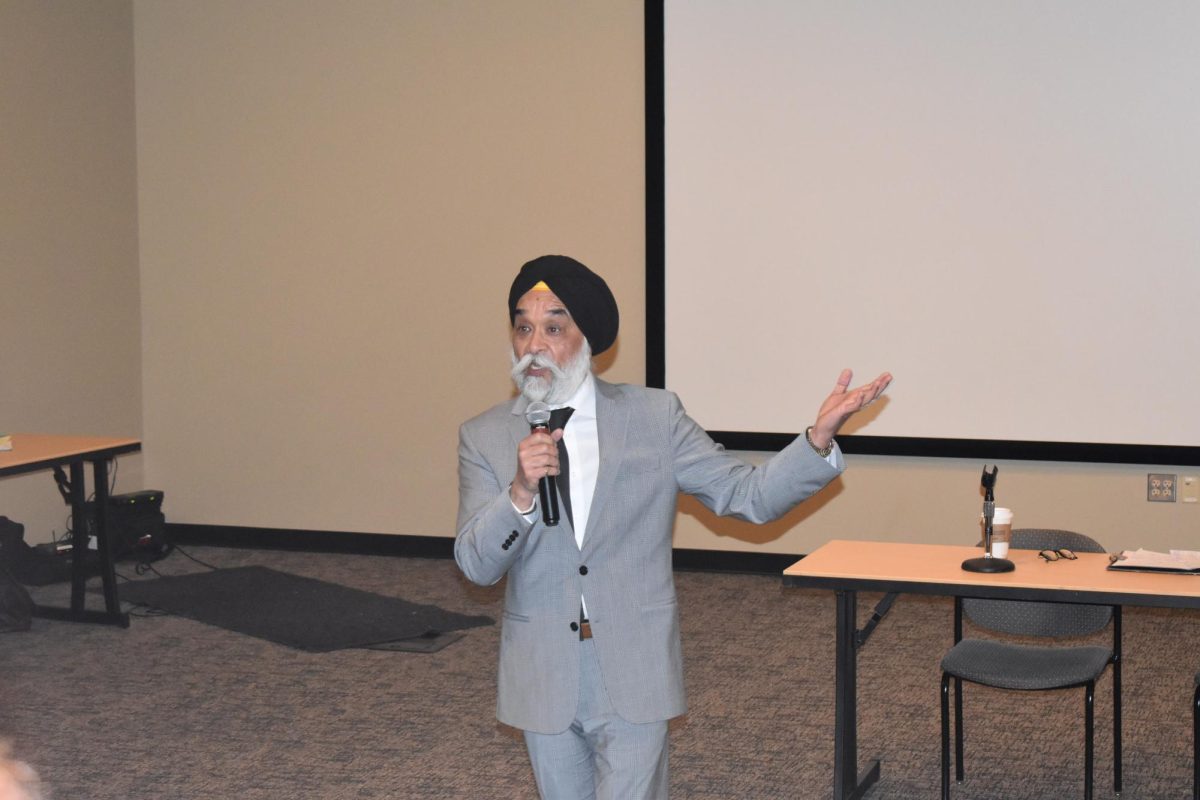Manohar Singh, one of four candidates for the position of UW Oshkosh’s next chancellor, said that collaboration and strategic decision making can help UWO get back on track during an open panel April 8.
“The strength of an institution is not the buildings, the assets, not even the money,” he said. “The strength of an institution is the people that we have. And I really mean it.”
UWO’s 11th Chancellor Andrew Leavitt, who has been the chancellor since Fall 2014, is set to step down after this semester.
A pool of candidates for the position was narrowed to four people: Singh, Joe Whitehead Jr., Amy Hietapelto and Robert Brinkmann.
Singh said he sees a lot of potential in UWO’s trajectory in the coming years.
“You have done a lot of hard work, a lot of work that requires sacrifices,” he said. “The entire higher education landscape in this country and, to some extent, globally, is facing very deep financial, structural deficits and enrollment declines, general skepticism.”
Singh said that, as part of his roles in higher education, he often found himself collaborating with the community.
As dean of the School of Professional Studies, Singh said he was tasked by the president to reestablish a program, which involved fundraising a $10 million endowment.
“We collaborated with local hospitals, local insurance companies, … local legislators from within the state of California,” he said. “Within six months, we were able to hit that target.”
Singh said that this was only possible because of collaboration with the community.
“It does take a village, and that’s my favorite thing to say,” he said.
Singh said that collaboration within the university, including shared governance, is crucial to success. When he joined Western Connecticut State University (WCSU), a survey scored the previous year’s shared governance as a 3.6. After one year, it’s up to 6.9.
“There has to be a goal, a vision, that everybody feels is their vision; it’s a shared vision,” he said. “Especially if you are in financial turmoil. … The biggest thing is, the leader must be having a thoughtful blueprint in mind, which can be offered to faculty, staff, students, stakeholders, foundation board, Board of Regents, chancellor’s office.”
At WCSU, Singh said he oversaw the elimination of the deficit from $12 million to $4.5 million in the first year. Additionally, Singh said enrollment is up by 10.1% from spring-to-spring.
Singh said that facilitating conversations and communicating played a large role in building effective, strategic plans to overcome the problems facing higher education, such as financial and enrollment difficulties.
“Be the leader who can facilitate the conversations,” he said. “Be the leader who can communicate transparently. Show integrity as a person and as a commitment to the vision. Be humble enough to seek support.”
Singh pointed to affordability, accessibility, program innovation and retaining students once they’ve been recruited as the four key points behind his success.
He also said that being visible to the campus and the community at large and providing students with a sense of belonging has helped him drastically improve retention.
“[My students] demand boldly what they need,” he said. “That’s an important thing. Can they boldly ask for something? … They feel empowered; they want to continue.”
Singh has served as the interim president of WCSU since August 2023, where he helped the institution navigate through financial and enrollment challenges, as well as leading the establishment of the School for Graduate, International and Career Studies.
Prior to serving as interim president, Singh served as dean of the School of Graduate and Professional Studies at Southern Connecticut State University, where he oversaw a 39% enrollment growth.
He served as the dean of the College of Professional Studies at Humboldt State University prior to this.
Singh’s full CV can be viewed at uwosh.edu/chancellor/wp-content/uploads/sites/69/2025/04/Singh-Manohar-CV.pdf.








